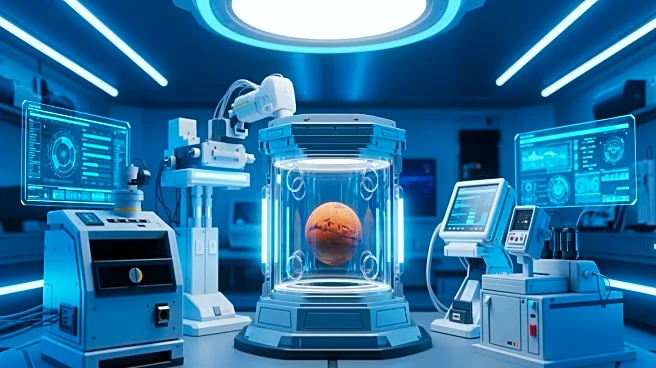What's Happening?
The Committee on Space Research (COSPAR) has developed the Sample Safety Assessment Framework (SSAF) to evaluate the safety of samples returned from Mars. The framework aims to determine if these samples could harm Earth's systems, including the environment
and biosphere. The SSAF starts with the hypothesis that martian life may be present in the samples, requiring a Hold & Critical Review if this cannot be excluded. The framework includes Bayesian statistics, subsampling strategies, test sequences, and decision criteria to assess self-replicating and biologically active molecules. The SSAF supports planning for a Sample Receiving Facility and science announcements, while acknowledging the need for further development of a detailed Sample Safety Assessment Protocol.
Why It's Important?
The SSAF is crucial for ensuring the safe handling of extraterrestrial samples, particularly those from Mars. It addresses the potential risks of introducing unknown life forms to Earth's ecosystems, which could have significant environmental and biosafety implications. The framework provides a structured approach to assess and manage these risks, supporting planetary protection efforts. The SSAF's applicability to other Mars sample return missions and restricted Earth return missions highlights its importance in future space exploration endeavors.
What's Next?
Further work is required to optimize and implement the SSAF, including setting assurance levels to exclude martian life, conducting analogue test programs, and acquiring contamination knowledge from Mars Sample Return elements. The SSAF will undergo future reviews by MSR stakeholders to ensure its effectiveness and adaptability to different mission concepts. The framework's development is a step towards safe and responsible exploration of Mars and other planetary bodies.















